THE DOORS
The Doors were an American rock band formed in 1965 in Los Angeles, California, with vocalist Jim Morrison, keyboardist Ray Manzarek, guitarist Robby Krieger and drummer John Densmore. The band took its name from Aldous Huxley's book The Doors of Perception, the title of which was a reference to a William Blake quotation: "If the doors of perception were cleansed every thing would appear to man as it is, infinite." They were among the most controversial rock acts of the 1960s, due mostly to Morrison's wild, poetic lyrics and charismatic but unpredictable stage persona. After Morrison's death in 1971, the remaining members continued as a trio until finally disbanding in 1973.
They were signed to Elektra Records in 1966, and released a string of multi-platinum albums, beginning with their 1967 eponymous debut album, followed by their 1967 album Strange Days. In 1968, the band broke into the mainstream with the album Waiting for the Sun. The 1967 release of The Doors was the first in a series of top ten albums in the US, followed by Strange Days (1967), Waiting for the Sun (1968), The Soft Parade (1969), Morrison Hotel (1970), Absolutely Live (1970) and L.A. Woman (1971), with 19 Gold, 14 Platinum and 5 Multi-Platinum album awards in the United States alone.. Although The Doors' active career ended in 1973, their popularity has persisted. According to the RIAA, they have sold 32.5 million certified units in the US alone. The band has sold 100 million albums worldwide. Ray Manzarek and Robby Krieger continue to tour as Manzarek-Krieger, performing Doors songs exclusively. They were the first American band to accumulate eight consecutive gold LPs. Three of the band's studio albums, The Doors (1967), Strange Days (1967), and L.A. Woman (1971), were featured in the Rolling Stone list of The 500 Greatest Albums of All Time, at positions 42, 407 and 362 respectively. In 1993, The Doors were inducted into the Rock and Roll Hall of Fame.
From March 7 to March 11, 1967, The Doors performed at the Matrix Club in San Francisco, California. The March 7 and 10 shows were recorded by a co-owner of The Matrix, Peter Abram. These recordings are notable as they are among the earliest live recordings of the band to circulate. On November 18, 2008, The Doors published a compilation of these recordings, Live at the Matrix 1967, on the band's boutique Bright Midnight Archives label.
During the recording of their next album, in November 1969, Morrison once again found himself in trouble with the law after harassing airline staff during a flight to Phoenix, Arizona to see The Rolling Stones in concert. Both Morrison and his friend and traveling companion Tom Baker were charged with "interfering with the flight of an intercontinental aircraft and public drunkenness". If convicted of the most serious charge, Morrison could have faced a possible ten-year federal prison sentence for the incident. The charges were dropped in April 1970 after an airline stewardess reversed her testimony to say she mistakenly identified Morrison as Baker.
Rick & the Ravens
(July 1965 – September 1965) - Jim Morrison – lead vocals
- Rick Manczarek – guitar
- Ray Manzarek – piano, keyboards, vocals
- Pat Sullivan – bass guitar
- John Densmore – drums, percussion
- Jim Manczarek – harmonica, organ
The Doors
(October 1965 – July 1971)
(October 1965 – July 1971)
- Jim Morrison – lead vocals
- Robby Krieger – guitar, vocals
- Ray Manzarek – keyboards, keyboard bass, vocals
- John Densmore – drums, percussion
The Doors
(1971–1973)
(1971–1973)
- Robby Krieger – guitar, vocals
- Ray Manzarek – keyboards, vocals
- John Densmore – drums, percussion
- Jack Conrad – bass guitar
- Bobby Ray Henson – rhythm guitar, vocals, percussion
The Doors of the 21st Century
(2002–2003)
- Ian Astbury – lead vocals
- Robby Krieger – guitar, vocals
- Ray Manzarek – keyboards, vocals
- Angelo Barbera – bass guitar
- Stewart Copeland – drums, percussion
D21C / Riders on the Storm
(2003–2004)
- Ian Astbury – lead vocals
- Robby Krieger – guitar, vocals
- Ray Manzarek – keyboards, vocals
- Angelo Barbera – bass guitar
- Ty Dennis – drums, percussion
Riders on the Storm
(2004–2007)
- Ian Astbury – lead vocals
- Robby Krieger – guitar, vocals
- Ray Manzarek – keyboards, vocals
- Phil Chen – bass guitar
- Ty Dennis – drums, percussion
Riders on the Storm
(2007–2008)
- Brett Scallions – lead vocals
- Robby Krieger – guitar, vocals
- Ray Manzarek – keyboards vocals
- Phil Chen – bass guitar
- Ty Dennis – drums, percussion
Manzarek–Krieger
(2008–2010)
- Brett Scallions – lead vocals
- Robby Krieger – guitar, vocals
- Ray Manzarek – keyboards, vocals
- Phil Chen – bass guitar
- Ty Dennis – drums, percussion
Manzarek–Krieger
(2010)
- Miljenko Matijevic – lead vocals
- Robby Krieger – guitar, vocals
- Ray Manzarek – keyboards, vocals
- Phil Chen – bass guitar
- Ty Dennis – drums, percussion
Manzarek–Krieger
(2010 – present)
- Dave Brock – lead vocals
- Robby Krieger – guitar, vocals
- Ray Manzarek – keyboards, vocals
- Phil Chen – bass guitar
- Ty Dennis – drums, percussion
Discography:
THE DOORS
(1967)
The Doors is the debut album by the American rock band The Doors, recorded in August 1966 and released in January 1967. It was originally released in significantly different stereo and mono mixes. It features the breakthrough single "Light My Fire", extended with a substantial instrumental section mostly omitted on the single release, and the lengthy song "The End" with its Oedipal spoken-word section.
The Doors credit the success of their first album to being able to work the songs out night after night at the Whisky a Go Go and the London Fog. The album was ranked number 42 on Rolling Stone's list the 500 Greatest Albums of All Time.
The Doors final line up was formed in mid 1965 after Ray Manzarek's two brothers left and Robby Krieger joined. The Doors were initially signed to Columbia Records under a six month contract, but the band agreed to a release after being unable to secure a producer for the album from Columbia. After being released from the label The Doors played club venues including the London Fog and The Whisky a Go Go until they were signed to Elektra records by Jac Holzman.
The songs "Break on Through (To the Other Side)" and "The End" were both released censored on the album. During "Break on Through," the part where Jim Morrison sings "She gets, she gets" was originally recorded as "She gets high, she gets high." The vocal interlude near the end of "The End" includes Morrison using the word fuck repeatedly and was taken out of the album's stereo release; however, it remains in the mono LP release of the album. Subsequent releases of the album have both of the original parts intact, although 1980s compact disc reissues kept the verses censored. The band accepted this censorship, but refused to reword "Light My Fire" in their infamous Ed Sullivan Show performance ("Girl we couldn't get much higher").
STRANGE DAYS
(1967)
Strange Days is the second album released by American rock band The Doors. The album was a commercial success, earning a gold record and reaching No. 3 on the Billboard 200 albums chart. Despite this, the album's producer, Paul Rothchild, considered it a commercial failure, even if it was an artistic triumph: "We all thought it was the best album. Significantly, it was also the one with the weakest sales. We were confident it was going to be bigger than anything The Beatles had done. But, there was no single. The record died on us." Nonetheless, the album managed two Top 30 hits, a Top 3 placing on the US charts, and a platinum certification. Furthermore, the album certainly did nothing to derail the overall success of The Doors, as demonstrated the next year by their chart-topping follow-up Waiting for the Sun.
Strange Days consists of songs that were written in 1965-1966, but did not make it onto their debut album, such as "Moonlight Drive", which was one of the first songs written by Jim Morrison. The song was recorded in 1965 (demo) and 1966 (intended for their first album). In 1967 a final version was recorded and released on this album. Strange Days contains some of The Doors' most psychedelic songs. It includes songs such as "Strange Days", "People Are Strange", "Love Me Two Times" and "When the Music's Over".
Strange Days reached #3 in the US in November 1967, while the band's debut, The Doors, was still sitting in the Top 10. "People Are Strange" shot to #12 on the US chart, and "Love Me Two Times" followed it, going to #25, thus proving The Doors' staying power after the runaway success of their debut. In the UK the band had yet to score a big hit single and Strange Days became one of two Doors studio albums not to chart, despite subsequent strong sales. In 2003, Strange Days ranked #407 on Rolling Stone's The 500 Greatest Albums of All Time.
WAITING FOR THE SUN
(1968)
Waiting for the Sun is the third studio album by the American rock band The Doors. It was released in 1968 and became the band's first and only number one album and spawned their second US number one single, "Hello, I Love You". It also became the band's first hit album in the UK, where it peaked at #16 in the chart. With the exception of two songs, the material for this album was written after the band's initial songs from the formation of the group had been recorded for their debut album and second album, Strange Days. The highlight of this album was supposed to be the lengthy theatrical piece "Celebration of the Lizard", but in the end only the "Not to Touch the Earth" section was used. The song "Waiting for the Sun" would not appear on an album until Morrison Hotel.
The track "Celebration of the Lizard" was intended to take up an entire album side, but the group was never able to get it right (they would revisit it later in its full-length form on their 1970 album Absolutely Live). Many fans have suggested once "Celebration of the Lizard" was shelved, two of the band's earliest tracks were resurrected and re-recorded for use to fill in the void, those tracks being "Hello, I Love You" and "Summer's Almost Gone". These two tracks had been recorded in an earlier arrangement for the band's original 1965 demo. Waiting for the Sun ended up as the shortest studio album by the band.
"Celebration of the Lizard" and two early takes of "Not to Touch the Earth" were included as bonus tracks on the 40th anniversary expanded edition release of this album.
Though a strong album lyrically, musically it has often been criticized for its softer, mellow sound, a departure from the edgier, more ambitious sound for which the band had become well-known (and notorious). Nonetheless, the album contains some rarely disputed classics, most notably the menacing "Five to One", the controversial anti-war anthem "The Unknown Soldier", and the evocative "Not to Touch the Earth".
The title track "Waiting for the Sun" was left off this album, but would be included on the 1970 album Morrison Hotel.
This album marked keyboardist Ray Manzarek's transition from a Vox Continental to Gibson G-101, the organ he is best known for playing live. The US monophonic pressing - though only a fold down of the stereo mix to mono - is one of the rarest pop/rock LPs and has been sought after by collectors for years.
THE SOFT PARADE
(1969)
The Soft Parade is the fourth studio album by The Doors, released in 1969.
The album met with some controversy among fans and critics due to its inclusion of brass and string instrument arrangements, as opposed to the more stripped-down sound of their earlier recordings. Fans also complained that The Soft Parade followed the lyrical formulas of previous albums, and thus was not very innovative. In reviewing the 40th anniversary remix (for the August 2007 issue of Downbeat Magazine) correspondent Dan Ouellette thought otherwise, declaring it to be "the apex" of the band's creativity.
Due to Jim Morrison's increasing alcoholism and interest in poetry, guitarist Robby Krieger has a stronger presence on The Soft Parade than on any other Doors album from the Morrison era, contributing around half the material, including sharing the lead vocal on the song Runnin' Blue.
After this album, the Doors returned to simpler styles on Morrison Hotel and L.A. Woman.
For the first time, the songs were credited to individual members (only Morrison and Krieger are actually listed on the albums sleeve) as Morrison was unhappy with the lyric "get your guns" on the album's first track. He was uncomfortable with the possible perception by some that that was in fact what he wanted listeners to do. Although, on later albums the writing credit would return to the earlier format and regardless of whose lyrics were being used the entire band was credited.
Despite a lukewarm reception, the album became the band's fourth top ten hit album in a row and the single "Touch Me" was hugely successful. However, despite making #6 in the US, the album did not chart in the UK, perhaps due to the band's lack of a supporting hit single ("Touch Me" also did not chart).
MORRISON HOTEL
(1970)
Morrison Hotel (sometimes referred to as Hard Rock Café from the title of the first side of the LP, whose second side is titled Morrison Hotel) is The Doors' fifth album. It was released in 1970. After their experimental work The Soft Parade was not as well-received as anticipated, the group went back to basics and back to their roots. On this album, there is a slight steer toward blues, which would be fully explored by the band on their next album, L.A. Woman. The strategy worked; even though no major hit singles were drawn from the album, Morrison Hotel reestablished The Doors as favorites of the critics, peaking at #4 on the US album chart, and when they followed with L.A. Woman the next year, they were rewarded with two more US Top 20 hits. The album also became the band's highest charting studio album in the UK, where it peaked at #12.
Additional musicians include G. Puglese (a.k.a. John Sebastian) on harmonica and Lonnie Mack on bass.
The cover photo was taken at the actual Morrison Hotel located at 1246 South Hope Street in Los Angeles. The band asked the owners if they could photograph the hotel and they declined, so the band went inside when nobody was looking and took the photograph. The rear cover features a photograph of the Hard Rock Café on 300 East 5th Street, Los Angeles. The founders of the later and otherwise unrelated Hard Rock Cafe chain used the name, having seen it on the Doors' album. The original cafe is no longer open for business.
L.A. WOMAN
(1971)
L.A. Woman is the sixth and last studio album that The Doors recorded with lead singer Jim Morrison, who died in July 1971. The album's style is arguably the most blues rock-oriented of the band's catalog.
The band embarked on a tour before completing the album, although it would only comprise two dates. The first was held in Dallas, Texas on December 11 and reportedly went well. The second performance took place at The Warehouse in New Orleans, Louisiana, on December 12, 1970, where Morrison apparently had a breakdown on stage. Midway through the set he slammed the microphone numerous times into the stage floor until the platform beneath was destroyed, then sat down and refused to perform for the remainder of the show. Drummer John Densmore recalls the incident in his biography Riders on the Storm, where after the show he met with Ray and Robby; they decided to end their live act, citing their mutual agreement that Morrison was ready to retire from performing. By the time the album was released, in April 1971, Morrison had moved to Paris, France, where he died three months later, on July 3, 1971.
In 2003, the album was ranked number 362 on Rolling Stone magazine's list of the 500 greatest albums of all time.
OTHER VOICES
(1971)
Other Voices is the seventh studio album by The Doors released in 1971. It was the first album released by the band following the death of lead singer Jim Morrison.
The recording of the album began while lead singer Jim Morrison was on holiday in France. The song "Down on the Farm" was allegedly already written at the time of the recording of the previous album, but Morrison did not want to include it. According to keyboardist Ray Manzarek, some of the songs had been rehearsed with Morrison before he left for Paris.
The three remaining members of the band regrouped and released the album in October three months after Morrison's death. Manzarek and guitarist Robby Krieger took Morrison's place as lead singers.
The album was not released on CD until October 23, 2006, by the Timeless Holland label, along with the final Doors album, Full Circle.
The Doors have largely disregarded the last two studio albums that were recorded without Jim Morrison, and had no plans of reissuing the albums on CD. At the time, The Doors stated that they were not in possession of the master tapes, but remastered material from both the albums has appeared on various compilations, most notably the 1997 Box Set and the 2000 compilation The Best of the Doors.
On September 27, 2011, The Doors finally gave Other Voices, along with Full Circle, its first official reissue that's currently available only for digital download via stores such as iTunes, Amazon.com and eMusic. It is not known whether the original master tapes were used in these reissues.
FULL CIRCLE
(1972)
Full Circle is the eighth studio album by The Doors released in 1972. It is the second album after Jim Morrison's death, and also their last album together before they broke up. The album includes "The Mosquito", the last hit single by the band. Keyboardist Ray Manzarek and guitarist Robby Krieger took Morrison's place as lead singer. Also, unlike their earlier work, bassists were collaboratively used on every track.
In 1972, The Doors released "Get Up and Dance" as a single in the UK; the B-Side was the non-album "Tree Trunk", one of only three non-album studio tracks released by the band.
According to Robby Krieger, the track was left off the album because "it sounded too commercial."[3] This is the song's only official release.
The Doors have largely disregarded the two post-Morrison albums, with no official American CD releases of the albums. Full Circle was released on CD October 23, 2006 by the Timeless Holland label, along with the previous (post-Morrison) Doors album Other Voices.
It is relatively easy to find unofficial CD copies of Full Circle and Other Voices on the Internet, but most of these vinyl-to-CD transfers do not contain the single-only "Tree Trunk", except for the Howling Wolf Records 2010 release of the two albums on one CD. This release also featured the single versions of "The Mosquito" and "The Piano Bird."
The Doors management has stated they are not in possession of the master tapes to the two post-Morrison albums, but remastered tracks from both of the post-Morrison albums can nevertheless be found on later official releases. The only track from Full Circle the Doors have reissued is "The Mosquito". The track was released in 2000 as "No Me Moleste Mosquito" on the double-disc version of The Best of the Doors.
On September 27, 2011, The Doors finally gave Full Circle, along with Other Voices, its first official reissue that's currently available only for digital download via stores such as iTunes, Amazon.com and eMusic. It is not known whether the original master tapes were used in these reissues.
AN AMERICAN PRAYER
(1995)
An American Prayer is the last studio album by The Doors. In 1978, seven years after lead singer Jim Morrison died and five years after the remaining members of the band broke up, Ray Manzarek, Robby Krieger, and John Densmore reunited and recorded backing tracks over Morrison's poetry (originally recorded in 1969 and 1970). Other pieces of music and spoken word recorded by the Doors and Morrison were also used in the audio collage, such as dialogue from Morrison's film HWY and snippets from jam sessions. The album received mixed reviews and still divides critics, yet it has managed a platinum certification in the US. When the album was originally released, longtime Doors' producer Paul Rothchild labeled the album a "rape of Jim Morrison". Rothchild claimed that he had heard all of the reels of master tapes from both the 1969 and the 1970 poetry sessions, insisting that the three remaining Doors failed to realize Morrison's original intent for an audio presentation of the poetry. Morrison himself, prior to leaving for Paris, had approached composer Lalo Schifrin as a possible contributor for the music tracks meant to accompany the poetry, with no participation from any of the other Doors members. In addition, he had developed some conception of the album cover art work by January 1971, and was in correspondence with artist T. E. Breitenbach to design this cover in the form of a tryptich (a three-paneled painting with various images embedded in each panel).
And now listen to some of their best:

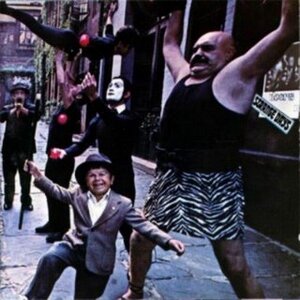

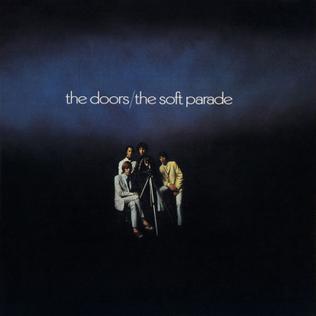
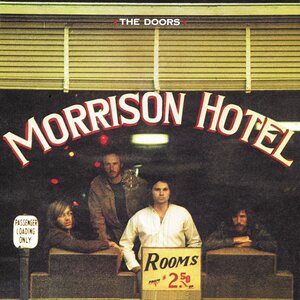

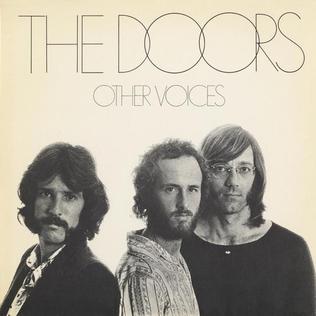
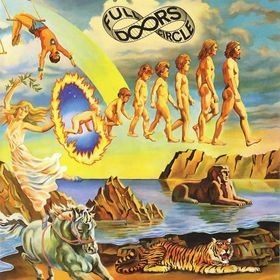
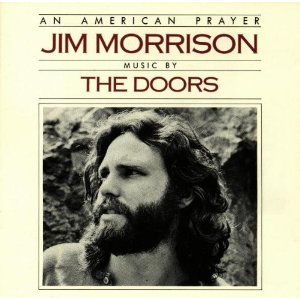
No comments:
Post a Comment